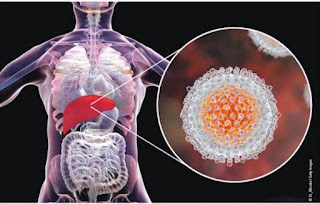What is diarrhea?
Diarrhea describes bowel movements that are runny or watery, and happen 3 or more times in a day also called loose stools. Diarrhea is very common. Most adolescents and adults have diarrhea about 4 times a year. Just about everyone has it at some point.
What causes diarrhea?Diarrhea can be caused by: Food poisoning
●Viruses
●Bacteria that live in food or water
●Parasites, such as tiny worms that you can catch in some countries
●Side effects from some medicines
●Problems digesting certain types of food
●Diseases that harm the digestive system
Is there anything I can do on my own to get better?Yes. Here are some things you can try at home:
●Drink a lot of liquids that have water, salt, and sugar. Good choices are water mixed with juice, flavored soda, and soup broth. If you are drinking enough fluids, your urine will be light yellow or almost clear.
●Try to eat a little food. Good choices are potatoes, noodles, rice, oatmeal, crackers, bananas, soup, and boiled vegetables. Salty foods also help.
Should I see a doctor or nurse?See your doctor or nurse if:
●You have more than 6 runny bowel movements in 24 hours
●You have blood in your bowel movements
●You have a fever higher than 101.3ºF (38.5ºC) that does not go away after a day
●You have severe belly pain
●You are 70 or older
●Your body has lost too much water. This is called "dehydration." Signs include:
•Lots of diarrhea that is very watery
•Feeling very tired
•Thirst
•Dry mouth or tongue
•Muscle cramps
•Dizziness
•Confusion
•Urine that is very yellow, or not needing to urinate for more than 5 hours
Will I need tests?Many people do not need to have tests. But it's possible that your doctor will do tests to check if you are dehydrated or to figure out what is causing your diarrhea. Your doctor might do:
●Blood tests
●Tests on a sample of your bowel movements
How is diarrhea treated?That depends on what is causing your diarrhea. You might not need any treatment. If you do, your doctor might recommend:
●Fluids through an "IV" – An IV is a thin tube that goes into your vein. People with a lot of diarrhea might need IV fluids to treat or prevent dehydration.
●Stopping some of your medicines
●Changing the foods you eat
●Antibiotics – These medicines treat bacterial infections. Most people do not need antibiotics, even if they have a bacterial infection. If you are very sick with fever and blood in your bowel movements, your doctor might prescribe antibiotics to help you get better faster.
●Medicines that ease diarrhea –You should not take loperamide or diphenoxylate-atropine if you have a fever or blood in your bowel movements. Also, taking too much loperamide has led to serious heart problems in some people. If you have health problems or already take other medicines, talk to your doctor or nurse before trying loperamide. For all of these medicines, it's important to not take more than the label tells you to.
Can diarrhea be prevented?You can reduce your chances of getting and spreading diarrhea by:
●Washing your hands after changing diapers, cooking, eating, going to the bathroom, taking out the trash, touching animals, and blowing your nose.
●Staying home from work or school until you feel better.
●Paying attention to food safety. Tips include:
•Not drinking unpasteurized milk or foods made with it
•Washing fruits and vegetables well before eating them
•Keeping the refrigerator colder than 40ºF and the freezer below 0ºF
•Cooking meat and seafood until well done
•Cooking eggs until the yolk is firm
•Washing hands, knives, and cutting boards after they touch raw food.
Sree Gastro and Liver Clinic, Delhi
Dr Amit Bhasin, Senior Consultant Gastroenterologist








